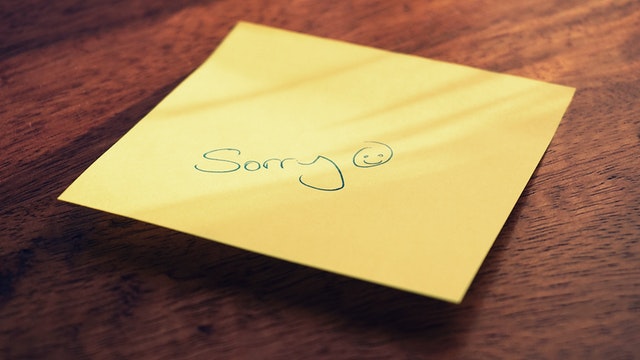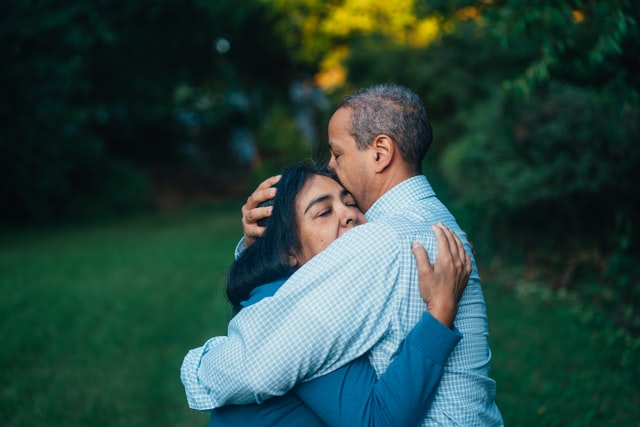In life, you’ll find that some people apologise too often, while others don’t at all. Being able to apologise and also accept apologies from your partner, are two important factors in a healthy relationship.
But it’s not just about apologising when something has gone wrong or you’ve made a mistake. It’s vital to learn to apologise when it’s needed, not just because it’s the easy way out.
Over the years you’ve probably been in situations where you’ve either offered a rubbish apology to someone or have received a rubbish one in return. If you truly are sorry for what happened, a sticky note is probably not the best way to go. So here are a few tips to help you convey a genuine apology.

How to apologise sincerely
- Understand why you’re apologising and what you’re apologising for. If you don’t understand why the other person is annoyed, hurt or upset, your apology will not be sincere. Understanding where you went wrong is important to make the other person feel heard and also so that you don’t make the same mistake again.
If you’re not sure what went wrong, ask them. For example, you could say that you’ve realised that things have been a little off recently and you don’t know why. Then listen to what they have to say.
- Learn when it’s appropriate to justify yourself and when not. Most importantly, forget about the “but” and take responsibility for your actions. An important part of saying you’re sorry can sometimes include explaining your actions. However, there is a difference between justifying your actions and explaining them. When you justify your apology, for example, with: “but I was feeling overwhelmed at the time”, your apology doesn’t convey much sincerity as you shift the blame away from you. And, it may make your entire apology sound superficial. Be specific about what you’re apologising for. Don’t be vague and definitely don’t blame the other person—even if they messed up, too.
- Be genuine about what you’re apologising for and don’t over-exaggerate your apology. If you apologise profusely over a small mistake, you may sound like you’re mocking the other person rather than apologising. Learn to find the balance between how much you need to apologise and what you’re apologising for.
- Be open to making amends. Depending on the situation and the people involved, you may find that your ability to repair the situation and make amends can greatly influence how well your apology is received. Being open to feedback to avoid similar situations in future helps rebuild trust if it was broken and is often equally important to the apology.
- Express regret or remorse and empathise with the person you’re apologising to. An apology is always more than just the words that are spoken, it’s also the way you say something with your body language and tone of voice. When you’re truly able to empathise with the other and, for example, show that you feel bad for making them feel bad, you also show you care for how they feel.
All of this makes for a more genuine apology.

There are many ways to apologise to a person. After a time of getting to know each other, you will come to learn the best way of going about it. And together with these tips, you will hopefully be able to make your apology sound sincere and genuine.
If you’re interested in learning more about love and relationships, sign up to the Lovedoc waitlist and be the first to get a sneak peek at the app and hear about launch updates.


